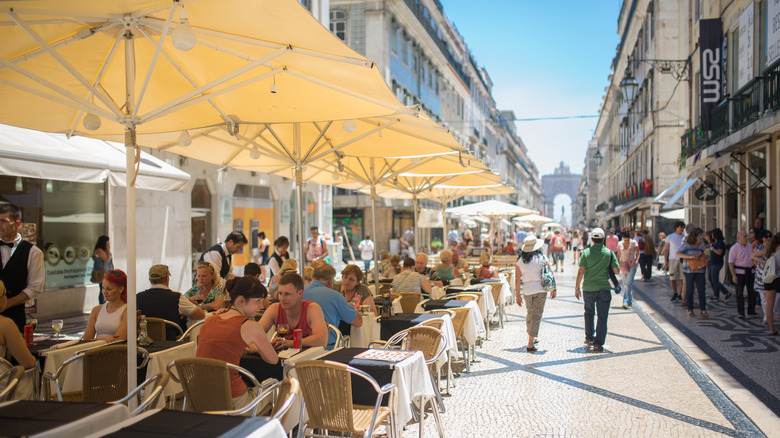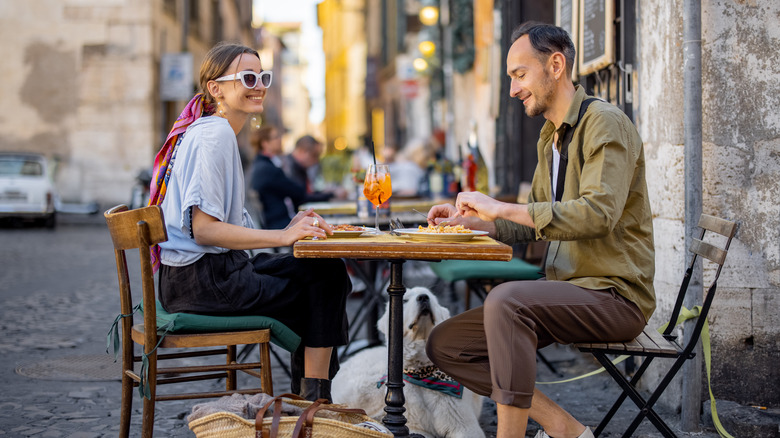“Rick Steves” isn’t just a name slapped on a TV show and some guidebooks. Rick Steves is a pro traveler who spends about a third of every year exploring Europe himself, gathering first-hand insights on which spots are worth visiting and which are best to skip.
Restaurants are an important part of any trip, and Steves makes sure to spend time sampling different eateries before adding them to his books and recommended travel itineraries. While researching for an updated version of his book “Rick Steves Scotland,” the travel expert stopped for lunch and filmed a clip explaining what makes a restaurant the perfect place to eat during a European vacation.
According to Steves, an establishment’s atmosphere is just as important as the food it serves. “I love the energy of an open kitchen,” he explains in the video, before panning to show the diners eating around him. “The clientele is people you want to be with. […] It’s mostly locals,” the travel guru adds. Thankfully, you don’t have to venture far from the tourist neighborhoods to find a good restaurant. Steves says that while the lunch spot in his video is close to his hotel, it’s too small to welcome large tour groups, lending to its local, authentic vibe.
Eat with the locals, not other tourists

Though high-quality meals can be found in touristy areas, Rick Steves has a genius tip for uncovering local spots in Europe: Head to the side streets. The “Rick Steves’ Europe” host told Travel+Leisure that some of the best places to eat are just around the corner from the big streets bustling with tourists. “I will find a place on the low-rent street a few blocks away, thriving with happy, local customers,” he revealed to the publication. “If you find that place, and it feels good to you because it’s just packed with locals eating, that’s going to be a great dinner.” Similarly, Steves noted that family-owned restaurants tend to feel especially friendly, which can elevate the experience regardless of what you order.
If an affordable lunch is what you’re after, Steves suggests finding the local market hall instead, located near the center of many European hubs. As he writes in a blog post, markets are often geared toward locals’ budgets, meaning you might save money on food compared to other restaurants in the area. If you’re not sure which stall to eat at, Steves says to go where the workers line up during their lunch breaks.
What to avoid, according to Rick Steves

Now you have an idea of what to look for when dining in Europe, but according to Rick Steves, there are also a few red flags to steer clear of — unless you want to waste your money on a subpar meal. First, he writes on his website that tourists can sometimes get duped into overpaying, particularly in markets. To avoid this, Steves suggests never eating at or buying food from a restaurant or stall that doesn’t clearly post its prices. Chances are the owner is keeping the prices vague so they can inflate them for gullible travelers.
As the globe-trotter told Travel+Leisure, you’ll also want to avoid spots with menus made with tourists in mind. Sure, a restaurant with an easy-to-understand English menu might seem welcoming, but the food is less likely to be fresh and authentic, according to Steves. “Everything’s wrong about this, and you’re going to be eating with other tourists,” he explained. Instead of dining at places with a pre-printed, translated menu, try restaurants with a small menu featuring seasonal and local ingredients.

